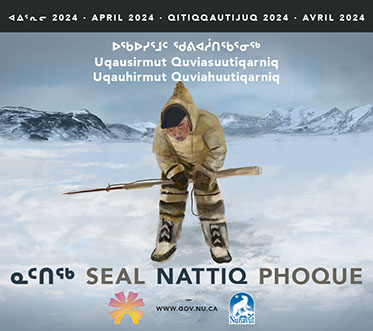Report: Arctic warming could cost trillions of dollars
“The Arctic is the planet’s air-conditioning, and it’s starting to break down”

Sheila Watt-Cloutier, right, discusses the impact of a changing Arctic at the release of a report by the Pew Environmental Group in Iqaluit Feb. 5. From left: Pew Environmental’s Arctic director, Scott Highleyman, biologist Eugienie Euskirchen and environmental economist Eban Goodstein. (PHOTO BY GABRIEL ZÁRATE)
Global warming in the Arctic will impose costs on the rest of the planet that could run into the trillions of dollars, a new economic report predicts.
“The Arctic is the planet’s air-conditioning, and it’s starting to break down,” said Eban Goodstein, the economist who contributed a financial analysis of the report’s scientific findings.
The report, by the Pew Environmental Group, attempts to calculate a dollar value for the effects of Arctic climate.
The report found that if climate change continues at current rates, Arctic feedback loops will contribute the equivalent of 42 per cent of the current greenhouse gas emissions of the United States.
That’s because changes in the Arctic environment also contribute to global warming.
As the Arctic thaws it releases tonnes of methane, a greenhouse gas 25 times as potent as carbon dioxide when measured tonne per tonne.
Also, white snow and ice reflect sunlight – and heat. Less snow and ice in the Arctic means less heat from the sun is reflected out into space and more is absorbed.
“It’s becoming more and more dramatic as the climate is warmed,” said biologist Eugenie Euskirchen, the scientific contributor to the Pew report.
The report assembled previous research to come up with a “CO2-equivalent” due to Arctic climate change.
These changes in the Arctic have generated heat equivalent of 500 new coal-fired power plants, the report finds.
That represents the financial costs to governments, industry and individuals in adapting to a changing climate.
Previous economists have assigned a dollar value anywhere from $22 to $104 per tonne of carbon dioxide emission, Goodstein said.
Goodstein gave some examples of the expensive impacts climate change will have on the world, including non-circumpolar countries:
• Rising sea levels mean coastal cities will suffer from floods;
• More violent and frequent tropical storms will be mean more expensive disaster relief; and
• “Australia-style” droughts and resulting crop failures will escalate food prices and displace the agricultural sector.
Euskirchen admitted the report doesn’t address one of the more direct impacts of Arctic warming on the world: rising sea levels.
It also doesn’t look at the methane released by a warming ocean or possible climate changes as oceanic currents are disrupted by changing temperatures.
Nor does it consider the Antarctic — the largest ice sheet in the world — and the similar feedback loops that may be forming there.
So the cost of climate change could be even higher than the astronomical numbers in the Pew report.
Though not a contributor to the report, Sheila Watt-Cloutier provided the human face for the direct local impact of a warming Arctic.
“The ice and the snow are very much part of our [Inuit] world,” she said at the report’s unveiling.
She pointed out the importance of sea ice as the highway of the Arctic, and the difficulty its loss would represent to Inuit.
“There is no price that one could pay many of us to lose that ice.”
In debating and advocating on behalf of Inuit to the rest of the world, she said many people told her they simply couldn’t afford to address their greenhouse gas emissions and climate change.
This report, she said, illustrates how the world cannot afford not to change.





(0) Comments